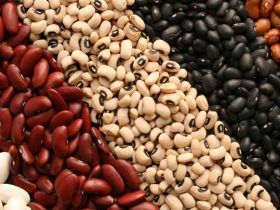IBS-C stands for irritable bowel syndrome with constipation. It is a chronic gastrointestinal (GI) disorder that affects the digestive system, especially the large intestine. It causes frequent bloating, severe abdominal pain, and infrequent stools that are hard to pass. Although IBS-C is not life-threatening, it can be extremely painful and uncomfortable if it interferes with your day-to-day activities.
There is no particular cure for IBS-C, so treatment relies solely on lifestyle and dietary changes. Also, prescriptions that target the symptoms from a medical practitioner can help treat the ailment. IBS-C appears to be a chronic condition that you will need to manage for a long period.
Even though the condition tends to last for a long period of time, only few people experience severe signs and symptoms. With proper care, people can control their symptoms by managing diet, lifestyle, and stress. Severe symptoms can be treated with medication and counseling. The exact cause of IBS-C is still unknown. However, it has been linked to things like food passing through your gut too quickly or too slowly, nerves in your gut being oversensitive, stress and a family history of IBS-C.
It is important to know that IBS-C does not cause changes in bowel tissue nor does it increase your risk of colorectal cancer.
Symptoms of IBS-C

All types of IBS affect the bowel movement, and IBS-C is only one type of IBS. The symptoms of IBS-C vary from one person to another but are usually present for a long time. Some of the most common and main symptoms of IBS-C include:
- Constipation: You may find it difficult to poo and feel like you cannot completely empty your bowel.
- Bloating: Your stomach may feel uncomfortable, full and swollen even if you have not eaten anything.
- Stomach Pain or Cramps: You might feel excruciating pain in your stomach. It is usually worse after eating and gets better after taking a dump.
- Diarrhea: This is when your poo is watery and there is a sudden need to poo.
People with IBS-C may experience a flare-up of symptom, especially when the symptom gets better and times when it gets worse. In some cases, certain food or drinks may trigger the symptoms. Also when it comes to IBS-C, the bloating and pain may go away temporarily after you must have done a bowel movement.
Other mild symptoms of IBS-C include:
- Backache
- Feeling sick
- Fatigue and lack of energy
- Passing mucus from you bottom
- Bowel incontinence make you unable to control your poo [1]
- Difficulty in peeing and feeling like you cannot completely empty your bladder
- Flatulence
What makes IBS-C different from other conditions of constipation is that it causes significant bloating of your stomach and pain. And you may not experience it if you were constipated. Amongst all its symptoms, IBS-C does not cause bloody stools or unintentional weight loss.
It is important that you see a doctor if you think you might have IBS-C. Some tests can be conducted to confirm if you have IBS-C.













